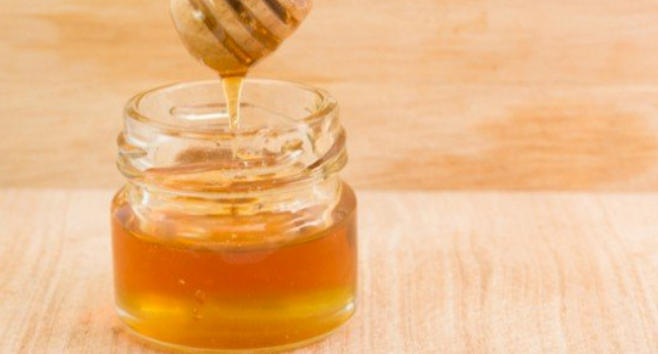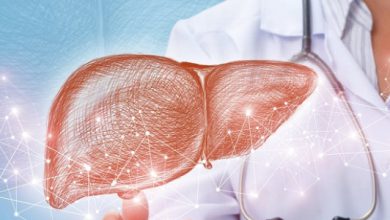In moderation, honey may be beneficial for diabetics, but it is best to consult a doctor before using it as a sweetener, and further studies are needed to confirm its benefits. In addition, the following can be mentioned:

Reduces fat and cholesterol levels in diabetics
A 2016 clinical study published in the Journal of Nutrition and Dietetic Sciences found that consuming 10 grams of honey for 10 weeks lowered glucose, total cholesterol, triglycerides, and LDL cholesterol levels.
Elevated liver enzymes may be reduced by taking it
The consumption of thyme honey along with high-intensity exercise may help people with diabetes reduce liver enzyme activity. According to a study published in the Journal of Diabetes Nursing in 2020, this is the case.
Antimicrobial and anti-inflammatory properties
Due to its antimicrobial and anti-inflammatory properties, honey is useful in treating diabetes and other diseases such as asthma, digestive disorders, cancer, heart diseases, and blood vessel problems. According to a 2017 scientific review published in Pharmacognosy Research.
Diabetes medications may be enhanced by honey
Taking honey together with anti-diabetic drugs may have clear positive effects, according to a clinical study conducted in Sudan and published in the journal Sudan Medical Monitor in 2015.
In the future, honey may have a therapeutic effect
Honey may have other benefits in the future for treating diabetes and reducing its complications. According to a 2018 review published in the Journal of Oxidative Medicine and Cellular Longevity.
Blood sugar effects of honey
In contrast to sugar, honey is sweeter than sugar, and it is recommended to consume less of it if used instead of sugar, and to use it in moderation and consult a doctor if possible.
Diabetes patients are advised to avoid it completely if their blood sugar level is not controlled, but if their blood sugar level is well controlled, they can consume pure and organic honey or fresh natural honey. Due to the fact that these types are considered safer for them. Sugar is not added to it, so it is sugar-free.
The following points are related to this topic:
Honey contains fructose, which can increase glucose absorption and glycogen synthesis in the liver. In light of this, a review published in the Lampung University Medical Journal in 2015 suggests that diabetic patients need to control their blood sugar levels
The results of studies regarding this benefit vary. Several studies should be conducted on the consumption of honey by diabetic patients, including larger samples. According to a 2018 review published in Oxidative Medicine and Cellular Longevity.
Honey’s effect on insulin
Those with diabetes should consult a doctor or nutritionist before consuming honey to ensure its safety and determine the permissible amount, since honey affects insulin in the following ways:
The consumption of honey during fasting periods may lower glucose levels and increase C-peptide levels (an important indicator of insulin production). Based on a 2017 review published in the Saudi Journal of Biological Sciences.
Honey consumption increases levels of aggregated sugar, or glycosylated hemoglobin, a measure of blood sugar, in patients with type 2 diabetes.
Honey’s nutritional value
Those with diabetes may want to know the ratio of sugar and other nutrients in honey in order to decide whether or not to consume it. Below is an explanation of all the nutrients in 1 tablespoon or 21 grams of honey:
| Nutrient | Nutritional Value |
| Water | 3.59 ml. |
| calories | 63.8 calories |
| carbohydrates | 17.3 grams |
| sugars | 17.2 grams |
| Sugars | 0.187 grams |
| Glucose | 7.51 grams |
| fructose | 8.6 grams |
| Maltose | 0.302 grams |
| Galactose | 0.651 grams |
| Dietary fiber | 0.042 grams |
| Protein | 0.063 grams |
| Fats | 0 grams |
| Calcium | 1.26 mg |
| iron | 0.088 mg |
| magnesium | 0.42 mg |
| phosphorus | 0.84 mg |
| potassium | 10.9 mg |
| sodium | 0.84 mg |
| Zinc | 0.046 mg |
| Selenium | 0.168 micrograms |
| Fluorine | 1.47 micrograms |
| Vitamin C | 0.105 mg |
| Vitamin B1 | 0 mg |
| Vitamin B2 | 0.008 mg |
| Vitamin B3 | 0.025 mg |
| Vitamin B5 | 0.014 mg |
| Vitamin B6 | 0.005 mg |
| folate | 0.42 micrograms |
| Colleen | 0.462 mg. |
Honey side effects
It is generally considered safe for most adults, including pregnant and nursing mothers, if the nectar produces flowers called rhododendrons. There is a toxic substance in this type of honey that may cause heart problems, chest pain, and low blood pressure.
The use of honey is contraindicated
Honey should be used with the following precautions:
Diabetics
The consumption of large amounts of honey can increase blood sugar levels in patients with type 2 diabetes, and a large spoonful of honey contains 17.3 grams of carbohydrates. Therefore, it is necessary to consult with a specialist doctor before using this product.
Pollen-allergic individuals
Honey should not be eaten if you are allergic to pollen. Due to the fact that it is originally made from these pills, it may cause allergic reactions.
Honey for diabetics: safe ways to enjoy it
As part of a healthy diet rich in vegetables, fruits, whole grains, nuts, seeds and legumes, diabetics can and do enjoy honey in a number of delicious recipes. When eating honey, calculate the total amount of carbohydrates in the meal, about the amount allowed for diabetics. Consult a doctor or nutritionist to find out.
An overview
Honey can have many benefits, including lowering cholesterol, increasing insulin secretion, and possibly reducing complications related to this disease in diabetics. However, it should be avoided if you are allergic to flower pollen. Different people have different needs, health conditions, and levels of control over their sugar levels.










